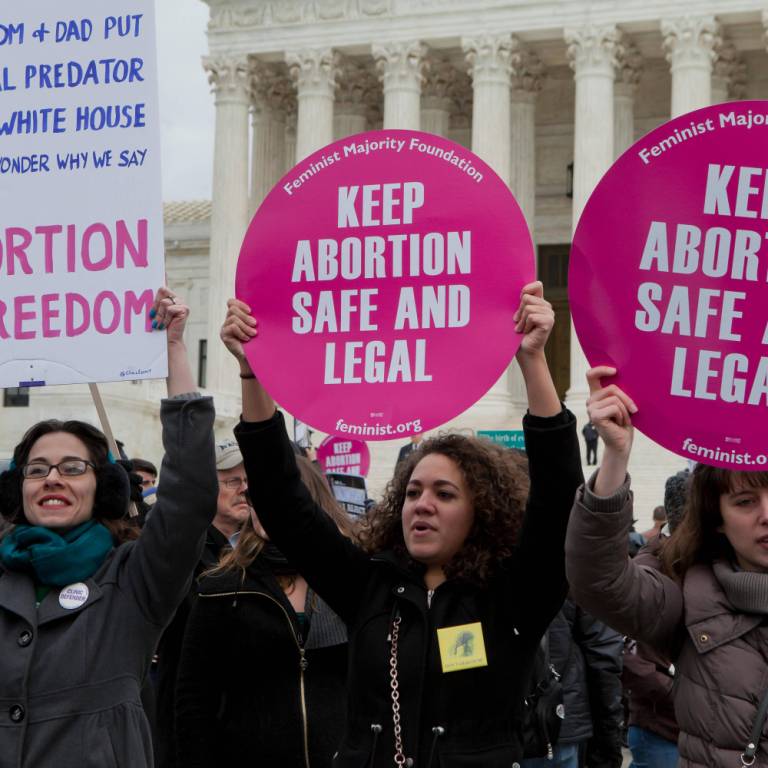(Washington, D.C.) – Following Donald Trump’s election win, some liberal women in the United States have announced a “sex strike” inspired by South Korea’s feminist “4B movement.” This movement encourages women to avoid heterosexual relationships, including dating, marriage, and even childbirth, to reclaim autonomy and shift gender dynamics. This response comes after an election that many viewed as a referendum on women’s rights, particularly after Kamala Harris’s defeat and the recent end of federal abortion protections under Trump’s influence.
Social media platforms, especially TikTok, have become forums for women voicing their commitment to the 4B movement, which stands for four Korean terms starting with “bi” or “no”: no marriage (bihon), no childbirth (bichulsan), no dating (biyeonae), and no heterosexual sexual relationships (bisekseu). Women are posting videos encouraging others to delete dating apps and embrace celibacy as an act of “sovereignty” over their bodies, using hashtags and captions to support their cause.
| Key 4B Movement Concepts | Translation in English |
|---|---|
| Bihon | No heterosexual marriage |
| Bichulsan | No childbirth |
| Biyeonae | No dating |
| Bisekseu | No heterosexual sexual relationships |
One woman on TikTok expressed her frustration, stating, “If men won’t respect our bodies, they don’t get access to our bodies.” She urged other women who “care about progressing women’s rights” to take similar steps, encouraging them to seek companionship from their female friends as they move forward without dating men.
The re-election of Trump, who promoted his role in ending the nationwide right to abortion and faced accusations of making offensive comments toward women, has further deepened the gender divide. Exit polls indicated that 55% of men voted for Trump, while 53% of women supported Harris, underscoring a significant gender split in the electorate.
| Gender Divide in 2024 U.S. Election | Voter Preference |
|---|---|
| Men (55%) | Voted for Trump |
| Women (53%) | Voted for Harris |
Comments across social media show that women are now taking the election outcome personally. Some described the result as indicative of sexism in the U.S., with one video caption reading, “Men will always be against women,” while another criticized American society for limiting women’s rights. Advocates of the 4B movement argue that their stance is not just about abstinence, but about asserting their autonomy in a political environment they feel is increasingly hostile to women’s rights.
The 4B movement emerged in South Korea in the mid-2010s, around the time of the #MeToo movement in the United States, in response to rising concerns about violence against women and gender equality issues. While it is not clear how widespread the movement is in Korea, it has gained a notable online presence. Some Korean men have responded negatively, using the term “kimchinyeo” or “kimchee women” to criticize the movement’s supporters as “selfish” or “exploitative,” creating further tensions.
In the U.S., women’s rights advocates emphasize that their response to Trump’s victory is not simply symbolic. With abortion rights still a hot button issue—highlighted by ballot measures in 10 states—many women view the 4B movement as a way to reclaim control over their lives. One TikTok user from Florida stated, “Good luck getting laid, because me and my girlies are participating in the 4B movement.”
Though the future of this movement in the U.S. remains uncertain, participants argue it has sparked a new wave of activism and solidarity among women determined to protect their rights and challenge societal norms. Whether the 4B movement will influence policy or remain largely symbolic, it has undeniably ignited conversation and fueled debate on women’s rights and autonomy in the post election landscape.




















